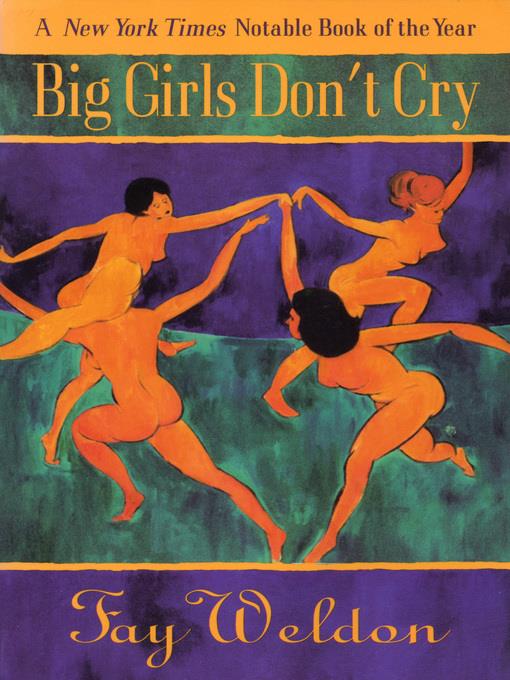
Big Girls Don't Cry
Weldon, Fay
کتاب های مرتبط
- اطلاعات
- نقد و بررسی
- دیدگاه کاربران
نقد و بررسی

August 31, 1998
Weldon's lightly satirical 22nd novel (after Worst Fears) takes a characteristically tart look back at the early days of feminism as experienced by four Londoners. In 1971 Layla, Zoe and Alice gather in Stephie's living room to engage in consciousness-raising while, in an upstairs bedroom, Stephie's husband, Hamish, deprograms a convert. The women discover this sexual betrayal just as Zoe's abusive husband, Bull, arrives to save her soul from women's lib. Provoked by these outrages, the remaining three decide to establish Medusa, a publishing house devoted to women's works. Soon they're joined by Nancy, who dumps her boring boyfriend to manage the office (and lives) of her newfound sisters. Meanwhile, Layla's anti-male resolve crumbles and she sleeps with Hamish; Stephie, having launched the radical feminist magazine Menstra, gets bored and seduces the handyman; and Nancy, assured of Medusa's success, reunites with her boyfriend. Alice alone remains celibate, dedicated to I Ching, pyramids and rose crystals, a New Age recluse. Zoe becomes the sisterhood's sacrificial lamb, committing suicide after Bull burns the manuscript she's been creating in secret. Weldon leaves it up to the younger generation--particularly Zoe's daughter, Saffron, to set things right. Weldon aficionados will recognize the predatory males, stock figures in the writer's repertoire, and the savvily sketched predicaments facing her feisty feminist heroines. Weldon wryly applauds the effort it takes to remain faithful to the cause. As the revisionist Layla points out, men are people, too.

August 1, 1998
This novel chronicles the lives of four women, founders of a British feminist press, over a span of two decades. Although Weldon's characters are ostensibly sisters in the feminist movement, they model their behaviors on those of the male world where power and desire prevail. Some of the women manipulate shares and shareholders to control the company while others compete for, and sleep with, the same man. As Weldon (Wicked Women, LJ 4/15/97) points out, these transgressions are all the more dishonest for being hidden behind the facade of sisterly support. Her satirical expose could have been more compelling if instead of profiling so many women over so many years, she had concentrated on developing one or two characters more fully. Weldon's novels are an acquired taste, and the present offering is recommended only for those collections where her works are in demand.--Caroline M. Hallsworth, Lib. Services, Cambrian Coll., Ontario

























دیدگاه کاربران